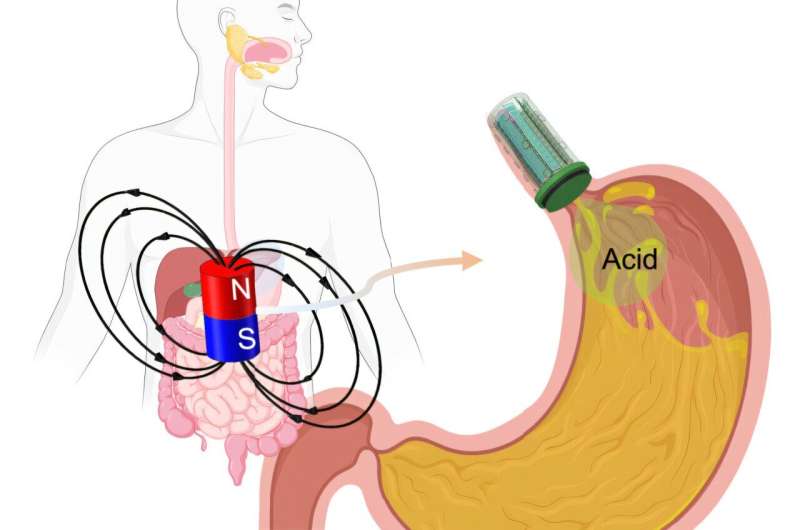The paper, “Magnetic soft robotic valve for minimally invasive therapy of gastroesophageal reflux disease,” was published in Device on September 23, 2025. Co-authors on the paper include Rishi Naik, MD, MSCI, assistant professor of medicine at Vanderbilt University Medical Center, and Yuxiao Zhou, Ph.D., assistant professor of mechanical engineering at Texas A&M.
Researchers say gastroesophageal reflux disease (GERD) highlights the urgent need for more effective and reliable sphincter technologies. GERD occurs when the lower esophageal sphincter fails to close properly, either due to muscle dysfunction or the presence of esophageal stents placed during tumor management, allowing gastric acid to flow back into the esophagus. This not only causes significant discomfort but also increases the risk of esophageal cancer.

